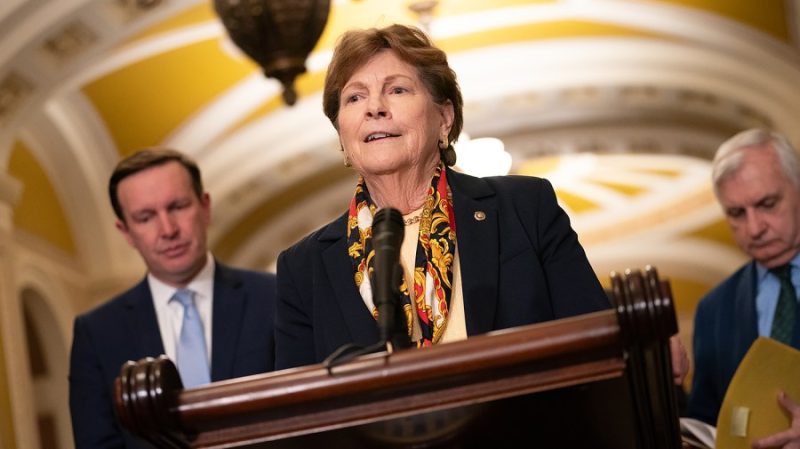Democrats in the House and Senate reintroduced legislation Thursday to permanently extend enhanced subsidies to help people afford insurance premiums on ObamaCare plans.
Led by Sens. Jeanne Shaheen (D-N.H.) and Tammy Baldwin (D-Wis.), along with Rep. Lauren Underwood (D-Ill.), the legislation launches the next major ObamaCare fight that could last well into the rest of this year.
Democrats for years have argued the coverage gains from the enhanced subsidies outweigh the cost, and Vice President Kamala Harris campaigned on making them permanent.
The subsidies increase financial help to low-income individuals who qualify for plans with cheap, or even zero-dollar premiums.
The Health Care Affordability Act was introduced in September, but Democrats didn’t pass it before the end of the year. They also tried unsuccessfully to insert a one-year extension into the year-end spending bill.
Now with President-elect Trump set to take office again and Republicans in control of both chambers, the task is more complicated.
The enhanced subsidies were first put into effect during the height of the coronavirus pandemic as part of President Biden’s 2021 economic recovery law and then extended as part of the Inflation Reduction Act.
The Congressional Budget Office (CBO) said permanently extending the subsidies, which come in the form of tax credits, would cost $335 billion over the next 10 years.
Republicans have balked at the cost. They argue the credits hide the true cost of the health law and subsidize Americans who don’t need the help.
The Republican Study Committee’s 2025 fiscal budget says the subsidies “only perpetuate a never-ending cycle of rising premiums and federal bailouts — with taxpayers forced to foot the bill.”
Sen. Bill Cassidy (R-La.), chairman of the Senate Health, Education Labor and Pensions Committee, last year said Congress should reject extending the subsidies.
Citing a paper from the conservative think tank Paragon Institute, Cassidy said the subsidies put “the cost of health care premiums into an inflationary and death spiral.”
“When Democrats demand these blank checks to insurance companies get extended next year, Congress should oppose,” he said.
Millions of enrollees have come to rely on the enhanced subsidies, and they’ve helped boost health insurance enrollment to record levels.
The White House this week said nearly 24 million Americans are buying their health insurance through the Affordable Care Act, about double the number of people enrolled when Biden took office four years ago.
If the subsidies are allowed to expire in 2025, tens of millions of Americans will likely see a sudden increase in their health insurance costs.
The CBO last month estimated premiums would spike without the subsidies, and the number of uninsured Americans would increase by more than 2 million in 2026, 3.7 million in 2027 and then 3.8 million each year on average through 2034.
At the same time, the health industry is also mobilizing to protect the subsidies. Insurers and providers could lose billions of dollars if they expire.
Explaining to millions of Americans why their health insurance premiums are suddenly too expensive for them to afford could be politically unpopular for Republicans. Many of the people who have benefited the most are in rural Southern red states that haven’t expanded Medicaid.
“If the ACA’s enhanced premium tax credits expire, costs will increase across the country and millions of Americans would be at risk of losing coverage altogether,” Shaheen said in a statement. “At a time when hardworking Americans are facing higher costs due to inflation, we should make every effort to lower prices where we can.”
At least one Republican, Sen. Lisa Murkowski (R-Alaska), has said she wants to extend the subsidies.
Murkowski told the Alaska Beacon that she understands Republicans will want to reflexively undo Biden’s actions because they “hated” the American Rescue Plan and “hate, hate, hate the Inflation Reduction Act.”
But Murkowski said the credits have shielded people in Alaska from the cost of rapidly rising health insurance premiums.
“I look at this, and I would make the argument that you’ve got a lot of folks that have seen some real relief,” she said.





